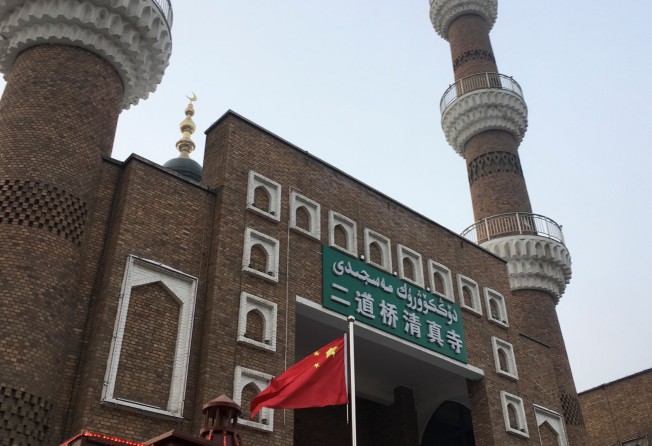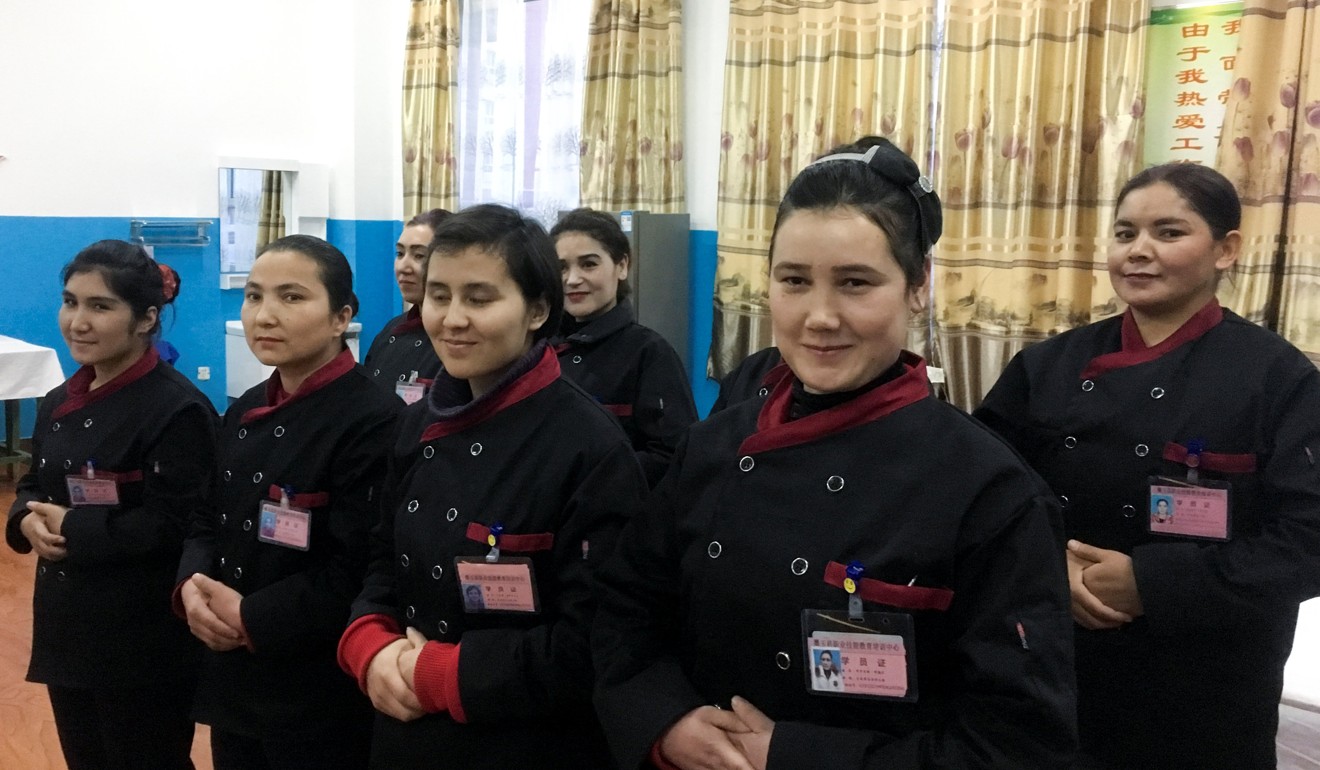China says UN officials can visit Xinjiang as long as they ‘avoid interfering in domestic matters’
- All visitors welcome provided they obey Chinese law and follow the procedures, foreign ministry says

UN officials are welcome to visit Xinjiang as long as they obey Chinese law and follow the procedures, China said on Monday as it seeks to counter a global outcry over its mass internment programme in the far western region.
The comment from China’s foreign ministry came after the government arranged tours for foreign journalists and non-Western diplomats to visit the internment camps over the past weeks – the first since its mass detention of Muslim minorities drew criticism from United Nations human rights experts, foreign governments, activists and scholars.
At a regular briefing, ministry spokesman Lu Kang said all parties, including UN officials, were welcome in Xinjiang provided they “abide by Chinese law and comply with relevant procedures”, according to a transcript on the ministry website.
UN officials should also “avoid interfering in domestic matters or undermining [China’s] sovereignty” and adopt an objective and neutral attitude, Lu said.
Lu’s remarks followed a similar invitation by Shohrat Zakir, chairman of the Xinjiang regional government, on Sunday. He said China welcomed UN experts to Xinjiang so they would “know the real situation ... and their comments will be based on facts and ground realities”, according to Pakistani newspaper The News International, which was part of last week’s foreign media tour.
Last month, Michelle Bachelet, UN high commissioner for human rights, said her office was seeking access to Xinjiang to verify “worrying reports” of the re-education camps.
But China turned down a similar request by Germany in December, according to German Human Rights Commissioner Bärbel Kofler.
A UN rights panel in August said it had received credible reports that at least a million Uygurs and other Muslim minorities in the region were being held in such facilities.
Detainees who have been released have told international media they were forced to denounce their faith and pledge loyalty to the Communist Party when they were in the camps. Some have also described being subjected to harsh treatment and even torture.
China initially denied the existence of the camps, but later shifted to an aggressive propaganda drive to justify the facilities as “vocational training centres” that help to save people from “religious extremism” by teaching them Mandarin, legal codes and skills to find a job.

Last week, a small group of foreign reporters were taken to visit three of the facilities in Xinjiang. A similar visit was also arranged for diplomats from 12 non-Western countries including Russia, Indonesia, India, Thailand and Kazakhstan.
During the media trip, reporters were closely escorted at all times, and interviews with residents were all done under the watchful eye of government officials, according to Reuters, which joined the tour.
In one class briefly visited by journalists there was even a performance in English of the song If you’re happy and you know it, clap your hands, Reuters reported.
Residents interviewed spoke of their “mistakes” of being “infected with extremist thought” – all in similar language to that used by the “trainees” featured in a report on state broadcaster CCTV about the camps in October.
Rights advocates said the staged visits would do little to convince Beijing’s critics.
Sophie Richardson, China director at Human Rights Watch, said: “I’d describe Lu Kang’s idea as a UN visit with Chinese party-state characteristics – and therefore one that would be devoid of credibility.”